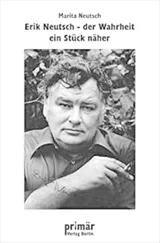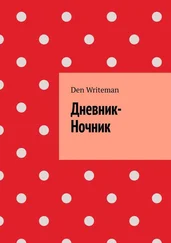After a few days we were organised into watches, as we would be in wireless contact with satellite stations twenty-four hours a day. More menacing still, the transmissions would be made from the backs of Bedford trucks equipped as well, if not better, than a static wireless office. Another week passed and still we didn’t have a CO, but our luck couldn’t last for ever; nor did it.
I was on duty watch. I wasn’t actually at my set—in fact I wasn’t even in the truck. Stripped to the waist, I was sitting on the steps, face upturned to the warm sun. I wasn’t entirely out of touch with my satellite stations: inside, the volume on my set was full up. Headphones hanging within earshot, I dozed gently, when suddenly a shadow fell over me.
Sleepily, I lifted my hand to shade my eyes when a harsh voice said, ‘Where’s your shirt?’
‘It’s in the van,’ I replied, settling down again.
The voice, now affronted, spoke again, ‘Well, put it on at once, and say “sir” when you address an officer.’ My heart sank: it was the end of the holiday.
The following morning we were paraded to hear him make his commanding officer speech. He was only a flight lieutenant, a middle-aged man who had a perpetual look of surprise on his face. He wore an officer’s peaked cap but he’d taken the stiffener out of it so that he would look like Jack the Lad, but he addressed us all as if he was expecting a raspberry at the end of each sentence. From now on there would be discipline; any misdemeanour, no matter how minor, would be punished; he was going to lick us into shape, etc. Most of it was delivered at me and I knew from that moment that he was going to be a problem, the enemy within.
Throughout my life I have followed courses of action on the spur of the moment when two minutes of rational thought might have dragged me back from the abyss. This was the case when one Sunday morning in Gatton Park we were marched down to the chapel to attend the service. We halted opposite the arched door-way, and we were straggling forward, dragging off our headgear before we entered, when for some unknown reason I put my cap back on my head, broke ranks and stood at ease until the others were all inside and I was alone. I was motivated by a barrack-room lawyer memory that taking part in a church service was not obligatory, and if on religious grounds you objected to entering a church you would be excused. Why on earth did these idiotic ideas catapult me into situations beyond my control? But the die was cast.
One of the real sergeants sauntered over to me when all the rest were inside sorting out their hymnbooks. ‘What’s up with you?’ he said in a world-weary voice as if I wasn’t the only one that morning to come out with some crackpot notion.
‘I’m not going into church, sergeant,’ I replied with the assurance that I had a good case.
‘Aren’t you C. of E.?’ he snapped at me.
Good grief, that was a critical flaw in my stance. Why had I requested Church of England to be stamped on my identity disc? There were lots of other religions I could have claimed: Muslim, Trappist monk, Buddhist. My brain raced as if I was an inept politician trying desperately not to answer a simple question, but before I could blurt out an adequate response he’d marched towards the door and entered the chapel, whipping off his glengarry just in time.
I realised I’d won the exchange. All I had to do now was to stand at ease and enjoy the warm summer breeze. I was looking the other way, so I didn’t notice the approach of the senior officer until he spoke.
‘What’s the problem, lad?’ he said in a quiet, fatherly voice.
I sprang to attention and spluttered the first thing that came to mind. ‘I don’t believe in it, sir, not with the war and people being killed.’ Actually I’m sure these words bear not the slightest relation to what I actually said—it poured out in fluent gabble.
He looked at me uncertainly, and then reasonably he said, ‘Why not give it one more try?’ and as he said it he gently propelled me into the chapel.
It was embarrassing to say the least. All heads were turned towards the entrance as we came in. Then the senior officer, his arm still round my shoulder in case I made a break for it, led me to a place next to him on the front pew—‘Officers only’.
As we sat, the padre came over to where I was sitting, and, laying his hands on the ledge in front of me, he began a lecture on why it was imperative that everyone should be Christian. After a few minutes he took his eyes from me and to the chapel in general he said, ‘Let us pray for all our wayward lambs.’ There was a shuffling as the congregation knelt and I did the same, blushing like an eastern sunset as my thoughts sped off at a right angle, as I noticed that, being in the officer’s pew, I had a hassock to kneel on and I am sure the erks were on bare boards, ha, ha.
Perhaps that lunatic action of mine was responsible—but I shall never know. If my memory serves me right, I can’t recall any more church services at Gatton Park.
One night I was on the midnight-to-eight watch, waiting for the welcome sound of the lorry bringing our relief from the camp. After the formalities of handing over were complete, we’d board the lorry, which would then take us back to camp for breakfast and, best of all, a few hours of blissful oblivion in our blankets. The night watch had been particularly draining, but the sun was strong and the birds were twittering ‘Good mornings’. What a pity to waste such a glorious summer asleep! On impulse I waved the lads off—there’d be plenty of time to sleep when we’re dead—and I started the long walk downhill to the town. Reigate was still unexplored, as far as I was concerned, but at least I knew where the WVS was (the Women’s Voluntary Service), a canteen run by bright-eyed, tweedy women with perpetual smiles who dished out tea and buns, rock cakes, sweets, and cigarettes to anyone in uniform who happened to drop by. These surrogate mothers giving up their free time for their highly valued war effort were a different world from the exhausted, shawled women of the Lancashire cotton towns. I banished the thought. They probably had a WVS in Oldham too, but somehow I doubted it.
Contentedly I munched on a bun—it was a good idea of mine —and sipped my tea. It tasted much better drunk from pottery. Also it was a well-known fact that the tea we drank at the camp was liberally dosed with bromide in order to dampen our appreciation of the opposite sex. The things we believed…Sighing with content, I continued to munch. Who needs sleep? I was feeling warm and comfortable and in a strange way the incessant babble of conversation was receding, as if someone was turning down the volume. The next thing I knew was that I was jerked out of a state of well-being by a crashing snore, and it was only when I noticed other servicemen staring at me that I realised that the snore had been mine, ruefully answering my cocky assertion, ‘Who needs sleep?’
I couldn’t stay in the WVS any longer. I put down my half-eaten bun and hurried into the fresh air. It was invigorating and once again I was wide awake and Reigate was my oyster. I took in my surroundings. Reigate itself was a flurry of activity during the day, with masses of servicemen—RAF, army, Poles, ATS (Auxiliary Territorial Service), a veritable league of nations. The British drove sedate old three-ton Bedfords, which pulled up at traffic lights with an apologetic wince of brakes; and now there were Chevrolets pulling up at the lights, doing at least forty miles an hour, stopping dead when they pressed the foot pedal with a triumphant chooooo of the airbrakes, shattering all the gentility of this lovely old town—the Canadian Army had arrived, careering everywhere, giving the impression that there was no speed limit in Toronto and beyond. But the envy of all the young bloods were the Canadian despatch riders. Even these weren’t just men on motorbikes: they rode Harley Davidsons, the nearest thing to a horse on wheels.
Читать дальше












